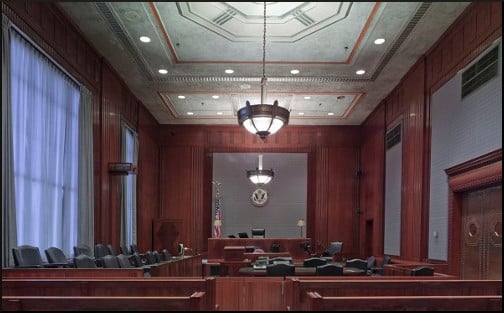
It isn’t every day that someone files a lawsuit against the Coca-Cola Company and the American Beverage Association (ABA). Who does this? A nonprofit corporation called The Praxis Project, aided by the Center for Science in the Public Interest and the Public Health Advocacy Institute. Praxis gets its support from the venerable Robert Wood Johnson Foundation and several other foundations.
The Praxis mission is health justice for all communities, accomplished by “transforming the power relationships and structures that affect our lives.” There are few structures more powerful that the Coca-Cola Company!
The object of going to court is to legally compel Coke to stop deceptive advertising to grownups, and all advertising to kids under 12; and stop denying that its products are linked to obesity, diabetes, and cardiovascular disease; and start disclosing the real information about the deteriorating effects of sugar consumption. They would also prefer it if Coke would stop paying “Health Professional Partners” to spread propaganda via social media.
They specifically want a jury trial, and as part of the legal process, it is necessary to show how Praxis itself has been materially damaged by Coke. Here is the reason, which may be adaptable by other plaintiffs in future actions:
Plaintiff has diverted significant resources to its advocacy concerning sugar-sweetened beverages. This diversion has prevented Plaintiff from allocating resources to other projects that advance healthier communities. Plaintiff could have avoided many of these expenditures if Defendants had not engaged in deception about the consequences of consuming sugar-sweetened beverages, consistent with its legal duty.
Praxis charges that Coke is trying to shove the whole connection between SSBs and obesity under the rug, and to divert attention elsewhere, namely to the refusal of consumers to do engage in enough physical activity to work off the calories. Coke does this knowingly, because it has evidence that their products are indeed connected to the rise in chronic medical conditions related to obesity.
Coke and the ABA are accused of subverting the truth by employing various euphemisms like “balance,” “calories in, calories out,” and “mixify.” The main instrument, for a while, was the Global Energy Balance Network (GEBN) a website that pretended to be impartial.
The lawsuit gives many examples of “dubious claims” made by the beverage industry, and cites an analysis of beverage studies showing that those sponsored by the corporations and the ABA were five times as likely to absolve sugary drinks from any blame. When study authors have no financial ties with the industry, their research paints a different picture.
The Amended Complaint also includes a plethora of scientific references to refute Coke’s sketchy assertions, such as that a fizzy drink is a sensible snack at any time of day:
Whether through GEBN, or various universities, Coca-Cola spent approximately $120 million, between 2010–2015 alone, surreptitiously funding various research and programs intending to confuse and misrepresent the science on the link between sugar-sweetened beverages and obesity, type 2 diabetes, and cardiovascular disease.
For Forbes.com, Nancy Fink Huehnergarth interviewed an expert not involved in the case, Edward P. Richards, JD, MPH. He feels that even if Praxis does not get what it asks for, some goodwill inevitably come from the lawsuit, because the legal requirement for discovery (showing documents to the other side) will reveal things that the industry does not want made public, which will probably lead to at least some change.
Your responses and feedback are welcome!
Source: “Mission & Approach,” ThePraxisProject.org, undated
Source: “Amended Complaint for Declaratory and Injunctive Relief,” CSPINet.org, 01/17/17
Source: “Even If It Fails, Lawsuit Accusing Coca-Cola Of Consumer Deception Could Yield Benefits For Health Advocates,” Forbes.com, 01/06/17
Photo via Visualhunt

 FAQs and Media Requests:
FAQs and Media Requests: 











